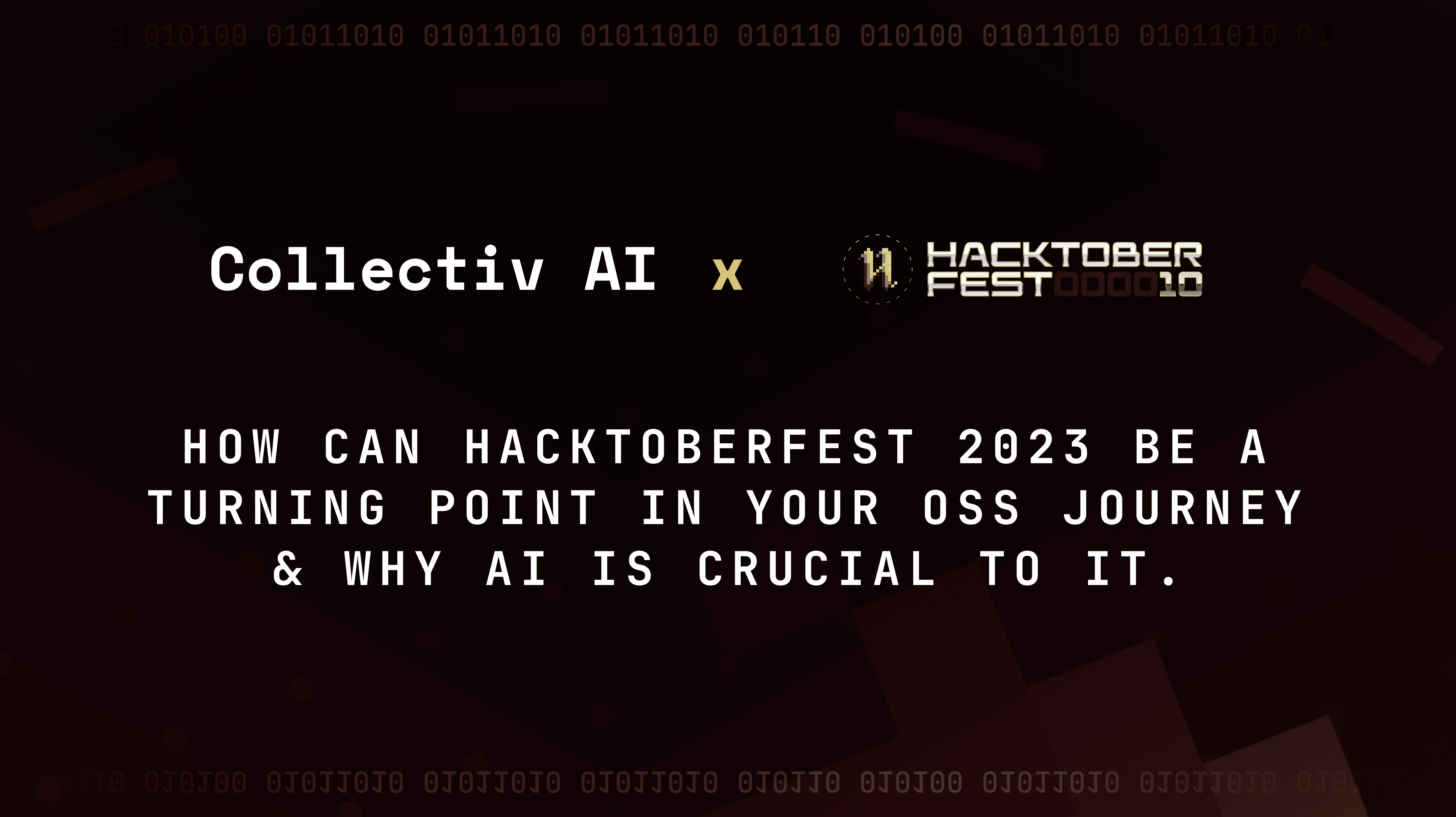Oct 3, 2023
Hacktoberfest 2023 - How AI can create an impact on Open Source Contributions

Written by
Nischal jain
The dark side of Hacktoberfest
Over the years, Hacktoberfest has garnered a lot of criticism from the open-source maintainer community. Primarily driven by the idea of getting their hands on a cool T-shirt, a large number of students flock to Hacktoberfest to submit tons of PRs, get any four accepted and be done with it. There is always a tussle to find the easiest issues and not meaningful ones.
This is so evident that in 2020, there was a major outrage in the community named #Shitoberfest. Projects that used to be involved in Hacktoberfest in the past are no longer a part. Hacktoberfest just adds more burden to the already burdened life of OSS maintainers. But the problem of open-source maintainers go beyond just Hacktoberfest. Maintainer mental health is highly overlooked, and people forget maintainers are doing open-source for free alongside a job that earns them bread. Some maintainers have gone so far as to quit open source.
This year, Hacktoberfest had to remove the T-shirt prize officially. This move was made to make the event more environment friendly by eliminating the logistics of shipping 50,000 T-shirts worldwide. But, I feel an un-disclosed reason to take the T Shirt away is to make more people contribute for the REAL cause of Hacktoberfest - which is celebrating the spirit of open source and bringing in more contributors.
What about new people who genuinely want to contribute?
Hacktoberfest was made to make OSS contributions more accessible and popular. Then what went wrong? Why people just flocked to do small changes and not meaningful ones, even though there used to be a T Shirt prize that motivated to take on tough challenges?
To me, the overall ecosystem does not look very welcoming/ accessible for beginners. Sure, there are issues labeled as good-first-issue, but no one talks about how to get started with a huge codebase or is there to assist you. Meaningfully contributing is a hard path that needs tons of patience. You rely on the community to answer your questions, which again leads to a burden on the maintainers who have to repeatedly answer the same kind of questions. Beginners often find themselves going through docs (which we know are not so well-maintained), and there is a lot of tribal knowledge that only a few maintainers know about. Ask someone who wants to contribute to an ASF project, and you will know the extent to which the tribal knowledge exists.
In such scenarios, I really don't think contributing to OSS is highly welcoming.
How to solve this chicken-egg problem?
It feels like there is a huge gap that AI platforms made specifically for navigating, understanding, and contributing to open-source projects can solve here.
It can help maintainers in doing AI-enabled PR reviews (at least about general best practices already followed in the repo) & save a lot of maintainer bandwidth. This can also bring down some of the toxicity that comes from frustrations of reviewing PRs of “noobs"
On the other hand, such tools can serve as valuable co-pilot for people starting out by helping people truly understand the codebase and the interdependencies. This can enable many more people to make impactful contributions than simple typo corrections.
AI has been shaping how we have been writing code, but it is still not solving human challenges that we face while collaborating during software development, at least not in open-source - which kind of runs the world.
DoWhile (formerly Collectiv) X Hacktoberfest 2023
We at DoWhile are trying to encourage more and more people this hacktoberfest to make meaningful contributions to open-source. DoWhile is an AI tool meant for understanding & contributing to OSS projects. More than 10,000 devs already use collectiv to make contributions to open-source! We are also giving some cool merch to all the contributors who make such meaningful contributions this October. Checkout more details on my other post to save your merch!




